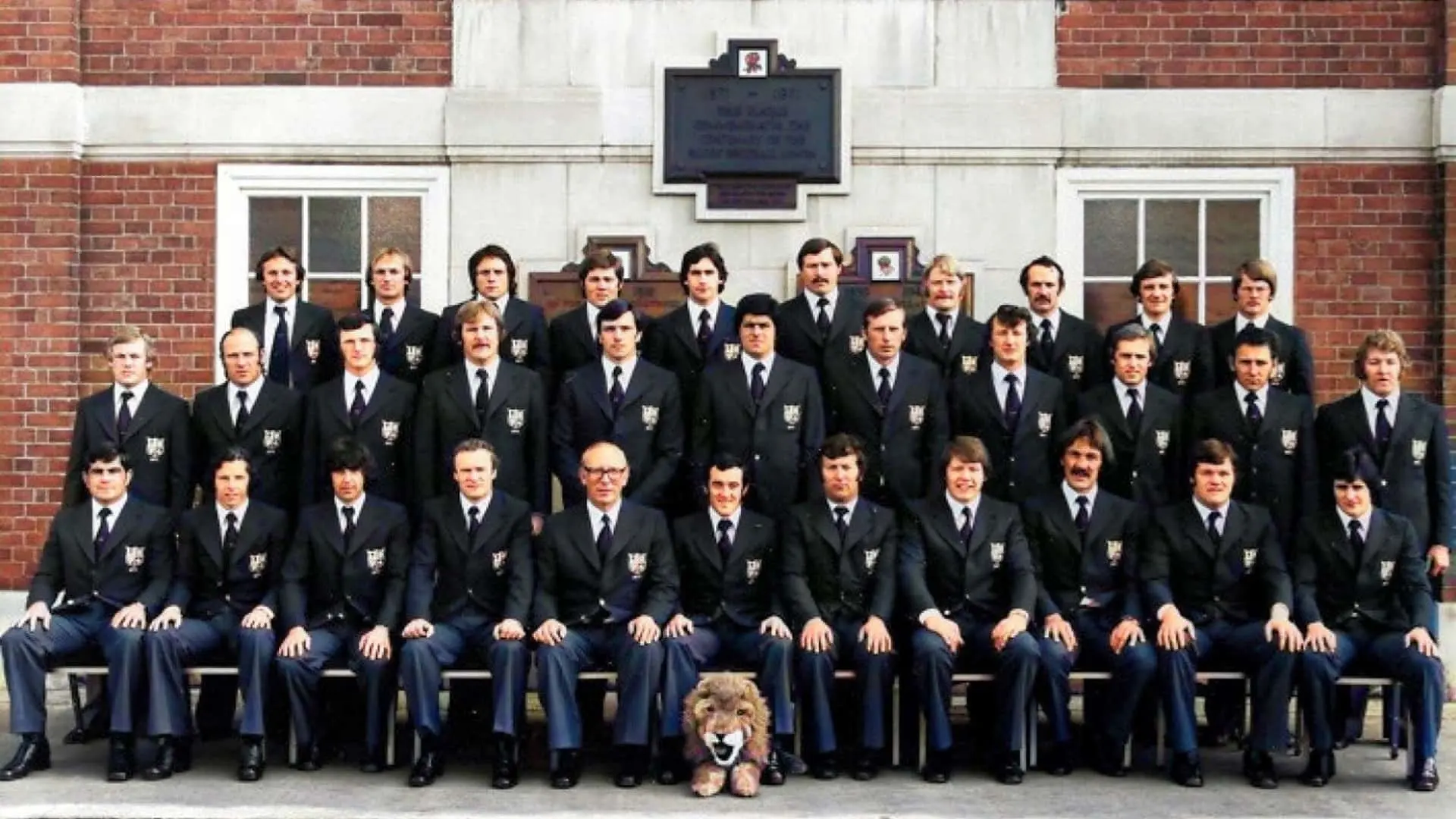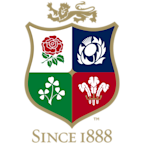A lack of luck, some nightmare injuries, the prevailing political climate at the time and some extremely strong southern hemisphere rugby meant times were tough for the Lions between 1977 and 1986, but their passion and determination remained unquestionable.

Lions stretched by injuries and tough opponents

Lions battle valiantly
The 1977 Lions were not short of world-class resources.
Legendary 1971 captain John Dawes was Head Coach, Phil Bennett captained the Tour and alongside him he had JJ Williams, Andy Irvine, Mike Gibson – on his fifth Lions Tour - and Ian McGeechan.
Forward strength
Their pack was a better unit than their All Black counterparts and throughout the Test series, they asserted their dominance at the scrum and breakdown.
Their only loss outside the Test series in New Zealand came on the Tuesday before the first Test when they fell to New Zealand Universities 21-9.
Before that they had beaten King Country-Wanganui 60-9 with Irvine making history after scoring five tries in the same game.

The First Test
The First Test
Although they were stymied by injuries to Gordon Brown and Nigel Horton, while Bill Beaumont had only recently arrived, the tourists made an encouraging start to the first Test.
Brad Johnstone’s hotly-contested try and a 60-yard interception score by Grant Batty just before the break left them too much to do in the face of a crushing Wellington wind in the second half.
The All Blacks led 16-12 at half-time and there the score would remain until the final whistle.
A famous victory in the Second Test was merely a roadblock on the path to a 3-1 All Blacks’ Test series victory but a legendary Lions pack kept their hopes alive for another week.
The second Test was a brutal affair but it was the Lions who emerged standing. JJ Williams' try and three Phil Bennett penalties guided them a 13-9 success and 1-1 in the Test series.
The Carisbrook pitch for the third Test was so wet, the organisers attempted to dry it out using a helicopter before the game and with the Lions missing six of their seven kicks at goal, the hosts won 19-7.
Fourth Test victory slips away
The fourth Test saw the tourists so dominant up front that the All Blacks were reduced to resorting to a three-man scrum, but again the visitors lost a match they should have won.
New Zealand’s forwards coach Jack Gleeson had actually practiced the three-man shunt in training and when prop John McEldowney went off with an injury Lawrie Knight moved into the front-row and deprived the tourists of their most potent weapon.
The Lions led at half-time through Doug Morgan’s score and penalty, a Bevan Wilson penalty New Zealand’s only retort.
Wilson scored another penalty after half-time before Bill Osborne’s high ball led to a score for Lawrie Knight, the No.8 ran in from 15 metres to clinch a series win.
Insult was added to injury in the Lions’ first ever test against Fiji in Suva, a demoralised and home-sick Lions squad losing 25-21.

Bad luck strikes early
Injuries are part and parcel of any British & Irish Lions Tour but the 1980 tourists were unluckier than any side that came before.
The coaching team of Syd Millar and Noel Murphy picked an original 30-man squad but a further eight players were called on during the Tour to fly over as reinforcements.
Most of injuries occurred in the back line – the Lions used eight different half-back pairings in the first eight games of the Tour.
And Bill Beaumont – the captain of the Tour after leading England to the Grand Slam earlier that year – called the rate of injuries the squad were accruing ‘frightening’.
The Springboks were able to regain a measure of the pride they had lost in '74 with a 3-1 Test series victory.

The Lions roar on regardless
The Lions won all 14 non-internationals they played – including a 37-6 win over Western Transvaal that was their biggest win since 1896 - but the Test series was just beyond them.
The first Test was close, Tony Ward kicking a Lions record of 18 points in South Africa with five penalties and a drop goal but the Boks outscored the Lions five tries to one to claim a 26-22 victory.
In the second Test the Boks won by a more comfortable margin than the 26-19 scoreline would suggest and the third Test in Port Elizabeth was again edged by the hosts 12-10.
But Beaumont – the first English captain of the Lions since Douglas Prentice 50 years before – rallied the troops for the fourth Test in Pretoria and they claimed an impressive victory.

Lions face All Blacks
In 1983 the Lions came up against the core of an All Blacks team that would go on to dominate the 1987 World Cup on home turf.
An extremely tough Tour saw the Lions win 12 of their 18 fixtures but not a single Test victory.
The side was led by Ireland’s Triple Crown winning captain of that year, Ciaran Fitzgerald, and coached by two-time Lions tourist Jim Telfer.
Willie John McBride managed the Tour having played 17 Lions Tests in his own career and famously leading the all-conquering 1974 Tour to South Africa.
Injuries hamper Lions progress
But while McBride’s Lions playing career was one of the best of all time; the 1983 Tour is more often remembered as one of a heavy itinerary, an incredibly long injury list and a very strong All Black side.
Ireland’s Donal Lenihan was forced to withdraw with a hernia problem but he was able to join the party later as one of seven replacements and key Welsh trio Terry Holmes, Jeff Squire and Ian Stephens were all forced home.
Despite the series 4-0 defeat, Peter Winterbottom came out of the Tour as one of the star performers for his high tackle rate and for the sheer volume of grass he covered from the back row.
Early success
With six warm-up matches in the first three weeks of the Tour, Lions enjoyed plenty of early success with five wins and just a single defeat.
They took that form straight into the opening Test at Lancaster Park in Christchurch on June 4 and led 9-6 at half time.
In the second period, New Zealand’s Mark Shaw scored the only try of the game and Allan Hewson knocked over a late drop goal from 45m to give the hosts a narrow 16-12 victory.

Ollie Campbell, who had helped orchestrate Ireland’s back-to-back Five Nations victories in 1982 and 1983, kicked all of the Lions points in Christchurch.
Campbell was the definition of reliability throughout the Tour, knocking over 77 per cent of his kicks at the posts during the Tour, 22/26 penalties and 18/26 conversions.
The Lions squad bounced back with three convincing wins in Tour fixtures against West Coast, Southland and Wairarapa Bush as they stepped up their preparations for the second Test.
And the Lions looked clear favourites at half time in the second Test at Athletic Park in Wellington after conceding just nine first-half points while playing into gale force winds.
But even with the wind in the Lions favour, the All Blacks refused to concede a single point in the second period.
Fitzgerald's men outscored the All Blacks by two tries to one in the third Test in Dunedin but were still edged out 15-8, as the Kiwis took an unassailable 3-0 lead in the four-match series.
After battling to three narrow losses, there was little the tourists could do when New Zealand came out firing in the final Test at Auckland as Stu Wilson scored a hat-trick to secure a 4-0 series win and send the Lions home disappointed.
1986 - The Lions take on the Best of the Rest
Owing to the 1986 Tour to South Africa being cancelled for political reasons, the Lions played a one-off Test match versus a Rest of the World XV in the Welsh capital, as part of the then IRFB (now World Rugby) centenary celebrations.
This match was officially recognised as a Lions fixture and all players in the match were allocated a Lions player number. In 2018 they were also awarded caps as part of the 1888 Club, alongside all other Lions players.
The Lions were managed by the great Clive Rowlands, coached by Mick Doyle and captained by Colin Deans.
The Test took place on a Wednesday in April at Cardiff Arms Park, only the second time in the venerable history of the Lions that they played on home soil.
21 players were selected for the clash against a mouth-watering World XV.
Their backline included Wallaby stars on the rise Michael Lynagh and Nick Farr-Jones, French masters Serge Blanco and Patrice Estève with Wayne Smith pulling the strings at No.10.
The power of Simon Poidevin and Murray Mexted up front made them a serious opposition.
But the Lions were packed with class acts as well.
The emerging Gavin Hastings would play full back with Rory Underwood on one wing and Trevor Ringland on the other.
Brendan Mullin and John Devereux were in midfield while John Rutherford and Rob Jones formed the half-back pairing.
Deans skippered from hooker either side of Jeff Whitefoot and Des Fitzgerald while Donal Lenihan and Wade Dooley made up the second row.
In the back row John Beattie and John Jeffrey dovetailed with Nigel Carr.
